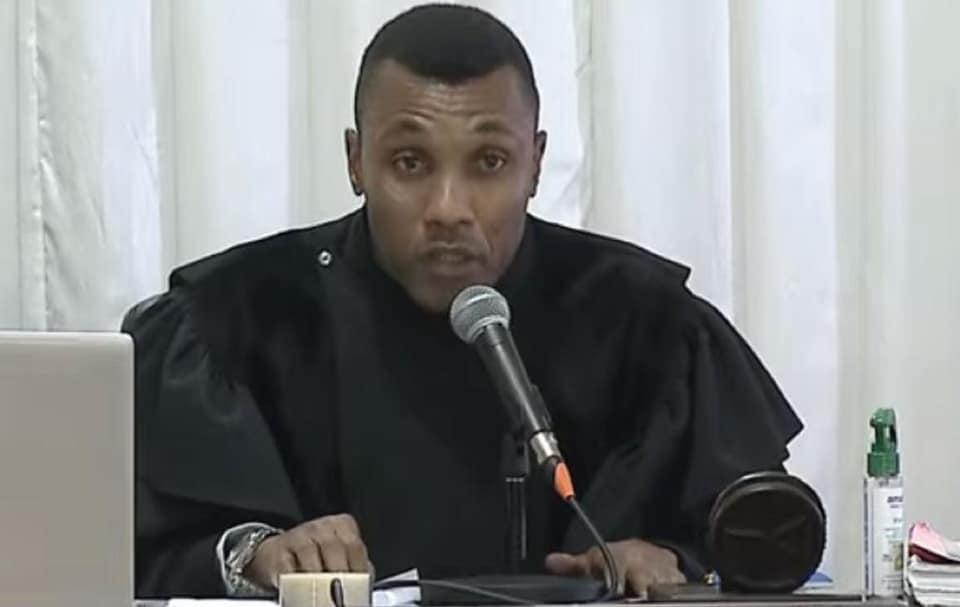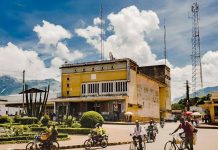Africa-Press – Mozambique. The reason that neither President Filipe Nyusi, nor his predecessor, Armando Guebuza, are facing charges in relation to the scandal of Mozambique’s “hidden debts” is that prosecutors have not found any evidence that either of them took money from the Abu Dhabi based group Privinbest, according to judge Efigenio Baptista, speaking at the Maputo City Court on Thursday.
Baptista thus answered repeated complaints from Gregorio Leao, former head of the Security and Intelligence Service (SISE). that he is the only member of the Joint Command of the Defence and Security Forces from the period when the debts were contracted (2013-2014) who is on trial.
“It shouldn’t just be me”, he declared on Thursday. “We had a hierarchy. I was just a member of the Joint Command. Other people should be here”.
The scandal arises from the loans of over 2.2 billion US dollars that three fraudulent, security-related companies, Proindicus, Ematum (Mozambique Tuna Company) and MAM (Mozambique Asset Management), obtained from the banks Credit Suisse and VTB of Russia on the basis of illicit loan guarantees issued by the Guebuza government.
Those guarantees turned the hidden loans into hidden debts, since when the three companies went bankrupt, the Mozambican state became liable for repaying the money.
Privinvest was the main beneficiary. The banks sent the loan money, not to the company offices in Maputo, but to Privinvest, which was the sole contractor for the companies. Privinvest then sent Mozambique fishing boats, patrol vessels, radar systems and other assets that were grossly overpriced. The independent audit of Proindicus, Ematum and MAM in 2017 showed that Privinvest over-invoiced the assets by more than 700 million dollars, which ensured that plenty of money was available for paying bribes and kickbacks,
According to Leao, the Joint Command took the key decisions leading to the establishment of the three companies, but he did not see why he should be singled out. Guebuza had chaired the Joint Command and its other key members were Nyusi (who was then defence minister), and the then Interior Minister, Alberto Mondlane.
Baptista said the question was one of following the money. Prosecutors had gone through the finances of the members of the Joint Command in great detail. The finances of the entire Guebuza family, and the companies they own, had been screened, and the only evidence found was against Ndambi Guebuza, the former President’s oldest son.
Ndambi Guebuza has not denied it – indeed, he told the court he had gone into business with senior Privinvest official Jean Boustani (although he refused to give any details of this business). Other evidence shown in court indicates that he took a Privinvest bribe of 33 million dollars.
But there was nothing in the bank accounts of his father, of his mother Maria da Luz Guebuza, of his brother Mussumboluco, or of his late sister, Valentina, to suggest that they had taken any money from Privinvest.
It was the same story with Mondlane and with Nyusi – their accounts, and those of their immediate families had been investigated, said Baptista, and not a single transfer from Privinvest had been found.
Of course, there could be transactions that are not shown on the bank accounts. So Baptista urged anyone who has evidence that Presidents Guebuza or Nyusi did take money from Privinvest to take the proof to the Attorney-General’s Office.
Privinvest has repeatedly boasted that it did indeed bribe Nyusi – although it did not, or course, use such an unpleasant word as “bribe”, preferring to call the payment a “political contribution”. Boustani mentioned the alleged payment to Nyusi at his trial in New York in 2019, and on the Privinvest spreadsheet detailing the illicit payments Nyusi was given the code name of “New Man”.
But Boustani’s word and a Privinvest spreadsheet do not count as evidence. If Privinvest has genuine evidence that it transferred money to Nyusi, then it knows what to do – it can submit copies of the relevant bank documents to the PGR.
“There has been plenty of opportunity to produce evidence”, Baptista pointed out.
Leao protested that there were no transfers from Privinvest to his bank accounts either – but the prosecution argues that is because the money went via his wife, Angela Leao, and her close associate, businessman Fabiao Mabunda.
The prosecution case, Baptista said, is that “Mabunda received the money from Privinvest, and Angela Leao told him how to use it. That is why you (Gregorio Leao) are here. The prosecution believes your wife was acting on your behalf”.
The former head of Mozambique’s Security and Intelligence Service (SISE), Gregorio Leao, on Thursday told the Maputo City court that he knows nothing about the various real estate deals struck by his wife, Angela Leao, using bribes paid by the Abu Dhabi based group, Privinvest.
He was testifying for the third day in the trial of 19 people charged with crimes related to the scandal of Mozambique’s “hidden debts”.
As shown by testimony earlier in the trial, much of the Privinvest money was chanelled to Angela Leao via the building company MMocambique Construcoes and its owner, Fabiao Mabunda.
Gregorio Leao attempted to persuade the court that there was an impenetrable wall between his SISE activities and his wife’s businesses. He said the couple had reached an agreement that “I would not interfere in her business and she would not interfere in mine”.
Prosecutor Sheila Marrengula showed him pictures of a property in the beach resort of Ponta de Ouro, and he claimed not to recognize it – although it is owned by his wife and a security guard, Romao Magido, had seen him visiting the place, notably for the 2015 New Year celebrations.
Asked where he had been on New Year 2015, Leao replied “I have spent New Year in many places. I am not banned from moving around the country”. Pressed specifically about New Year 2015, he fell back on the claim that he could not remember where he had been,
On Tuesday, when asked about the three fraudulent, security related companies at the heart of the scandal, Proindicus, Ematum (Mozambique Tuna Company) and MAM (Mozambique Asset Management), Leao ducked questions by saying that he did not know the details, and the court would have to ask the former head of SISE economic intelligence, Antonio do Rosario, who became chairperson of all three companies.
Now he tried the same tactic with the Leao family properties. He did not know anything about the deals, and their financial arrangements, and so the court would have to ask his wife.
This supposed ignorance extended to the couple’s residence in the Jonasse neighbourhood, on the outskirts of Maputo. Large sums were spent on this house, which the prosecution argues came from Privinvest. Leao referred most of these questions to his wife, though he added that the house was completed with the use of a bank loan.
But he claimed he could not remember when work on the house finished, and insisted “I was never involved in the building jobs”.
As for Angela Leao’s alleged links with Privinvest, he said “I didn’t know she had business with Privinvest. I’m only hearing it now”.
Asked about a company in South Africa called the Leao Investment Group, the former SISE head, claimed he had never heard of it. He admitted he had tried to set up a company called Laguna with a friend named Manuel Nuvunga, “but I don’t remember the details, and it never came to anything”.






